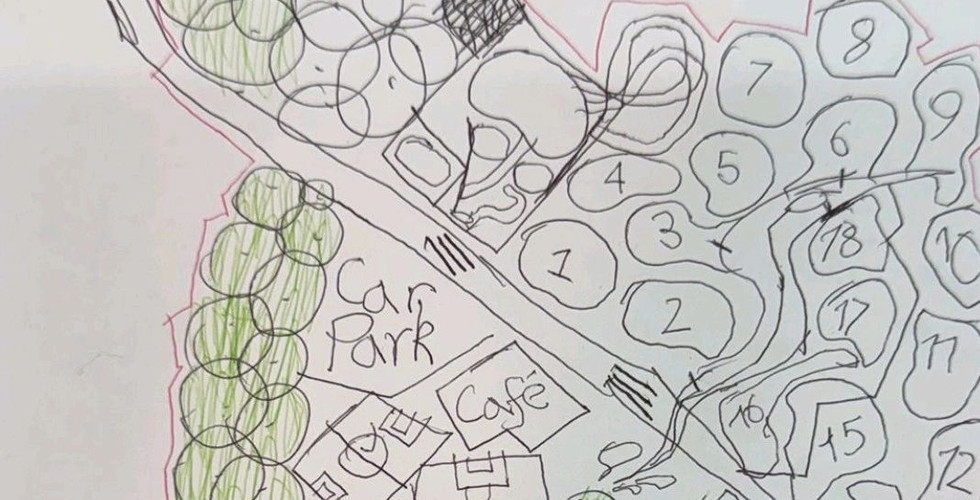Cooperative Working in Horsford: A Model for Building Trust and Delivering Community Value
- Leani Haim
- May 21, 2025
- 4 min read
In today’s planning environment, collaboration is not a luxury — it is essential. Whether navigating neighbourhood planning, or engaging with developers and local authorities, in many cases it falls to town and parish councils to ensure that decisions made about the future of its settlement delivers local community value. Some go as far as bringing together residents, local authorities and developers to shape shared futures. Something that is likely to become even more important as devolution continues.
Horsford Parish Council, in Norfolk, offers an excellent case study in how cooperative working can build trust and deliver lasting social value. Through a cooperative working approach to its Neighbourhood Plan Refresh, the Parish Council has shown how developers, residents and public bodies can be united to deliver development that works for everyone. This approach, however, is not limited to neighbourhood planning; it can also be applied in other planning contexts, such as feeding insights into local plan processes or fostering direct collaboration with developers.
What is Cooperative Working?
Cooperative working creates space for:
Residents to share their hopes and concerns
Community groups and organisations to advocate for local needs
Different tiers of councils to align their plans and policies
Developers and landowners to provide the resources to develop and test the community’s aspirations.
In Horsford, these partnerships have been key to shaping sensitive, sustainable growth.
Why Cooperative Working Matters
Planning processes often risk becoming confrontational, especially when residents feel plans or development have been imposed upon them. Developers and local authorities alike are recognising that delivering benefits informed by local insights — such as local jobs, community infrastructure, inclusive spaces and environmental enhancements — fosters goodwill and delivers sustainable growth.
Horsford’s Approach to Cooperative Working
The Horsford Neighbourhood Plan Refresh demonstrates how this can be achieved through:
Bringing Partners to the Table
The Parish Council worked closely with Broadland District Council, Norfolk County Council, landowners, developers and community groups. This included regular working group meetings, developer forums, and landowner presentations. These were not merely procedural; they created shared ownership of the process. Broadland District Council and Norfolk County Council are supporting the vision, helping to align neighbourhood priorities with local plan objectives and deliver infrastructure projects like the Transport Masterplan. Regular meetings and presentations ensured that landowners and developers understood and responded to local needs, from preserving village character to delivering community benefits like sports facilities and safe walking routes. Extensive consultation allowed residents to voice their opinions on growth, infrastructure, and local facilities. This ensured proposals reflected genuine community need.
Listening to the Community
Trust between developers and residents can often be fragile. However, Horsford’s experience shows that when people feel heard, they are more likely to support development. Developers who engage early and positively often enjoy smoother planning processes and stronger local relationships. Residents benefit from having their voices reflected in decisions that shape their community.
Transparent Decision-Making
By maintaining open dialogue and publishing findings, the Parish Council fostered trust. Developers also benefited, as they gained clear guidance on local priorities allowing them an opportunity to plan for a reduced risk of costly objections and appeals. One of the main consultation events was praised by developers and landowners as highly successful, well-organised, and inclusive, with strong attendance and constructive feedback from residents. Participants appreciated the open and accommodating approach of the Parish Council, which enabled valuable discussions not only about local issues but also about the positives of village life. Horsford's proactive and transparent engagement with landowners and developers from the outset was commended for fostering fairness, avoiding adversarial tensions, and encouraging all parties to focus on how development can deliver genuine community benefits.
Aligning Development with Social Value Goals
Cooperative working in Horsford is helping to secure plans that will offer wide benefits, from improved walking and cycling routes to new recreational facilities, supporting health, wellbeing and local identity.
The outcome of this process is that the voice of the community has been central in deciding where and how development should happen, and what infrastructure is needed to support it and make the settlement more resilient and self sufficient.
Next Steps for Horsford
Horsford Parish Council will continue to foster partnerships as the Neighbourhood Plan Refresh progresses and development takes shape. Its Regulation 14 consultation is planned to take place this summer. The Parish Council anticipates entering this first formal stage of the process with the confidence that all key partners, including the community, will positively engage with the process having been genuinely involved in shaping the Plan’s content.
Lessons for Other Parishes
Horsford’s cooperative approach reflects a broader movement in planning that believes:
Early and ongoing engagement is vital.
Honest conversations with developers can deliver better outcomes for all.
Community involvement strengthens trust and ensures development meets local needs.
Social value must be integrated, it is not an add-on.
Conclusion: A Blueprint for Trust and Community Value
By fostering cooperative working, Horsford Parish Council has shown how planning can be proactive, inclusive, and plans for successful delivery through using its Neighbourhood Plan Refresh project. Development is no longer seen as something done to the community but something done with them. This approach delivers not only homes and infrastructure but also enduring social value. Working cooperatively creates win-win-wins — developers deliver their schemes, local authorities benefit from the delivery of housing and sustainable development, and communities see lasting benefits.
For any parish or town council navigating similar challenges, Horsford offers an inspiring example of how partnerships, transparency and a shared vision can rebuild trust and shape places people are proud to call home.










Comments